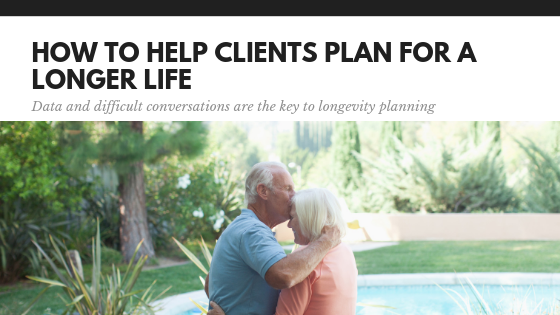Longevity financial planning is a hot topic, no wonder, considering a sizeable portion of the population is projected to live until their 80s if not longer. This begs the question, will your clients outlive their money?
If you plan accordingly, your clients can ensure that their money lasts as long as they want and need it to. However, if your clients want their money to last, they first need to prioritize and create a strategy for the goals for their wealth.
Asking questions
There are almost infinite questions you can ask your clients regarding money in their later years, but there are a few key subjects you’ll want to touch on to make sure they are thinking about their future appropriately.
First and foremost, a discussion around long-term care is paramount. Longevity without some type of long-term care is unusual. It’s almost impossible to set a framework for wealth management in the later decades without talking about how, where, and with what assistance, your clients will age. Solutions such as HALO can help put individualized numbers behind the long-term care conversation.
Once your clients feel comfortable around their plan for long-term care, then you can move on to incidentals like recreation, necessities, transportation and the like. This will paint a comprehensive picture about how your clients will plan for long life, what roadblocks they may face along the way, and what kind of unforeseen expenses they may encounter.
This isn’t to say that planning for other expenses outside of long-term care will be a walk in the park. Housing and transportation, in their own right, can eat into the budget of the elderly fairly quickly. However, it’s far easier to plan everything around long-term care than it is to shoehorn it into an existing budget and try to find money at the end.
Data + conversation are the foundation of longevity planning
Everyone knows they can’t live forever, but that won’t stop them from trying. If you are proactive, your clients’ wealth will be protected as they age and they will have the security of knowing that their finances will be with them until the end. Using personalized data and having difficult conversations early can ensure that your clients are prepared for longer life.

